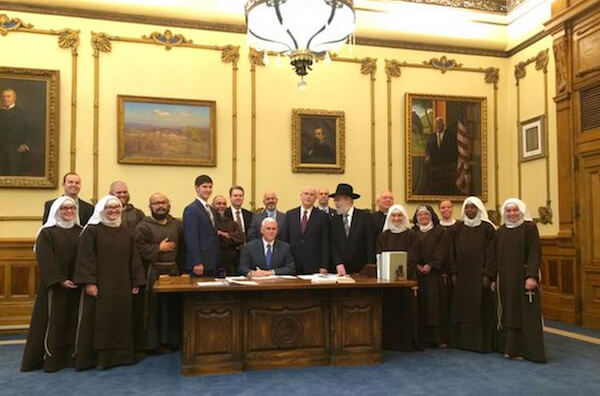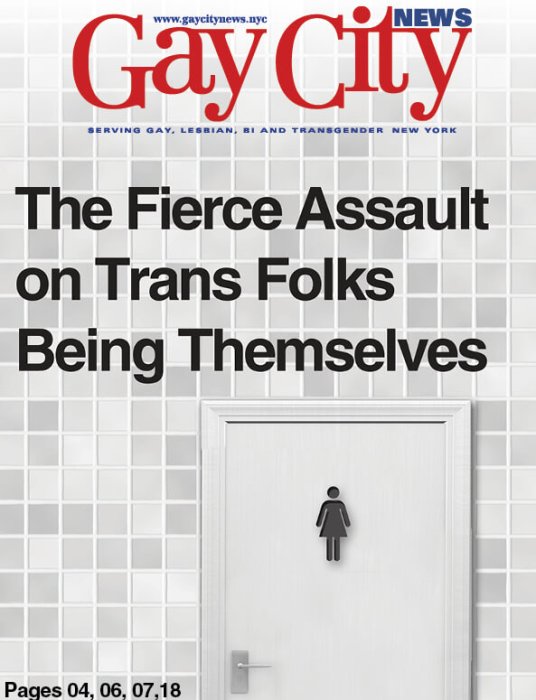US District Judge Stefan R. Underhill has ruled that a transgender doctor could go forward with her sex discrimination claim against a Connecticut hospital under Title VII of the Civil Rights Act of 1964.
Underhill noted his court is not bound by any controlling ruling on whether gender identity should be treated like sex under the 1964 Act either from the US Supreme Court or the New York-based Second Circuit Court of Appeals, whose jurisdiction Connecticut courts fall under.
He concluded that more recent opinions finding that “sex” in the Civil Rights Act should be broadly construed to include gender identity are more persuasive than older rulings that rejected this view.
Gender identity bias is sex discrimination, district court judge finds
Underhill issued his ruling in Fabian v. Hospital of Central Connecticut on March 18.
According to her complaint, Dr. Deborah Fabian applied and was very nearly hired as an on-call orthopedic surgeon at the hospital after being recruited for the position by Delphi Healthcare Partners, a third-party provider of physicians and management personnel. Fabian, who initially presented herself in the hiring process as Dr. David Fabian, claims she was “all but hired” and had even been sent a proposed contract, which she had signed, and that she considered the final interview with hospital officials to be a “formality.” Indeed, relying on representations from Delphi, she and her wife sold their home in Massachusetts in planning for the move to Connecticut.
During the final interview, Fabian disclosed that she was a transgender woman in the process of transitioning and would be reporting to begin work as Dr. Deborah Fabian. She was later informed she would not be hired.
Fabian took her discrimination claim against the hospital and Delphi to the federal Equal Employment Opportunity Commission (EEOC), alleging a violation of the 1964 Act’s sex discrimination provision as well as Connecticut’s comparable statute. Since Connecticut had, at that time, not yet enacted a transgender rights law, Fabian’s claims under both federal and state law were that the hospital had engaged in unlawful sex discrimination.
The hospital, seeking summary judgment against her, focused on several lines of attack. It argued Fabian was not being considered for a staff employee position, but rather to be an independent contractor retained through Delphi, so she could not make an employment discrimination claim against the hospital. Secondly, the hospital argued that its decision not to hire her was based on its conclusion during the final interview that she was reluctant to take late-night calls to the Emergency Department and was uncomfortable with its new electronic records system, and that she wanted a job involving more surgery. Finally cutting to the chase, the hospital also argued that sex discrimination protections under either Title VII or Connecticut law did not cover gender identity discrimination claims.
Underhill found that the hospital’s claim that Fabian was being considered for independent contractor status rather than outright employment involved factual questions that could not be resolved at this stage in the litigation. Especially in the health care field, the issue is complicated, and the Supreme Court has identified more than a dozen distinct factors to consider in making such a determination. Underhill found that an evidentiary hearing, at a minimum, would be necessary before this issue could be decided.
The main question, to which the judge devoted most of his opinion, was whether Fabian was alleging a kind of discrimination covered by Title VII and Connecticut law. Underhill noted that for decades after Title VII was enacted, both federal courts and the EEOC had consistently taken the position that gender identity claims were not covered.
That status quo, however, began to change after the Supreme Court’s 1989 decision in Price Waterhouse v. Hopkins, where the high court accepted the plaintiff’s contention that her promotion had been denied because the firm’s partners felt she failed to conform to their stereotyped views about how a “woman partner” should act, groom, and dress. With sex stereotyping accepted as evidence of sex discrimination, some federal courts, by the early 21st century, embraced the argument that discrimination against transgender persons involves sexual stereotypes in violation of Title VII. That view was endorsed by the EEOC in a 2010 decision involving federal employment, and subsequently adopted by the Justice Department.
Underhill wrote that he agreed with the courts “that have held that Price Waterhouse abrogates the narrow view” that had been taken in earlier decisions.
“The narrower view relies on the notion that the word ‘sex’ simply and only means ‘male or female,’” he continued. “That notion is not closely examined in any of the cases, but it is mistaken. ‘Male or female’ is a relatively weak definition of ‘sex’ for the same reason that ‘A, B, AB, or O’ is a relatively weak definition of ‘blood type’: it is not a formulation of meaning, but a list of instances. It might be an exhaustive list, or it might not be, but either way it says nothing about why or how the items in the list are instances of the same thing; and the word ‘sex’ refers not just to the instances, but also to the ‘thing’ that the instances are instances of. In some usages, the word ‘sex’ can indeed mean ‘male or female,’ but it can also mean the distinction between male and female, or the property or characteristic (or group of properties or characteristics) by which individuals may be so distinguished. Discrimination ‘because of sex,’ therefore, is not only discrimination because of maleness and discrimination because of femaleness, but also discrimination because of the distinction between male and female or discrimination because of the properties or characteristics by which individuals may be classified as male or female.”
Underhill pointed to an array of historical references to such broader understandings of the word “sex” dating back to the 18th century, but also including the 1960s when Title VII was adopted. Even in the absence of direct evidence about what the drafters of the “sex” amendment thought in 1964, the judge found indirect evidence that a broader understanding of the word was in wide use at that time.
Underhill also quoted a favorite hypothetical case put forward by those who argue that gender identity discrimination is covered by sex discrimination protections: just as an employer who had no bias against Christians or Jews could be held to have discriminated because of religion if they discharged an employee for converting from one religion to the other, an employer who has no particular bias against men or women could be held to discriminate because of sex if he discharged an employee for transitioning from male to female. No court, Underhill insisted, would make the mistake of finding no discrimination because of religion in the case of the religious convert.
“Because Christianity and Judaism are understood as examples of religions rather than the definition of religion itself,” he wrote, “discrimination against converts, or against those who practice either religion the ‘wrong’ way, is obviously discrimination ‘because of religion.’ Similarly, discrimination on the basis of gender stereotypes, or on the basis of being transgender, or intersex, or sexually indeterminate, constitutes discrimination on the basis of the properties or characteristics typically manifested in sum as male and female — and that discrimination is literally discrimination ‘because of sex.’”
So, Underhill concluded, “on the basis of the plain language of the statute, and especially in light of the interpretation of that language evident in Price Waterhouse’s acknowledgment that gender-stereotyping discrimination is discrimination ‘because of sex’… discrimination on the basis of transgender identity is cognizable under Title VII.”
With the hospital’s summary judgment motion dismissed, Fabian’s suit can proceed to trial unless a settlement is reached.
Fabian is represented by Theodore W. Heiser of Sullivan Heiser LLC, of Clinton, Connecticut.



































